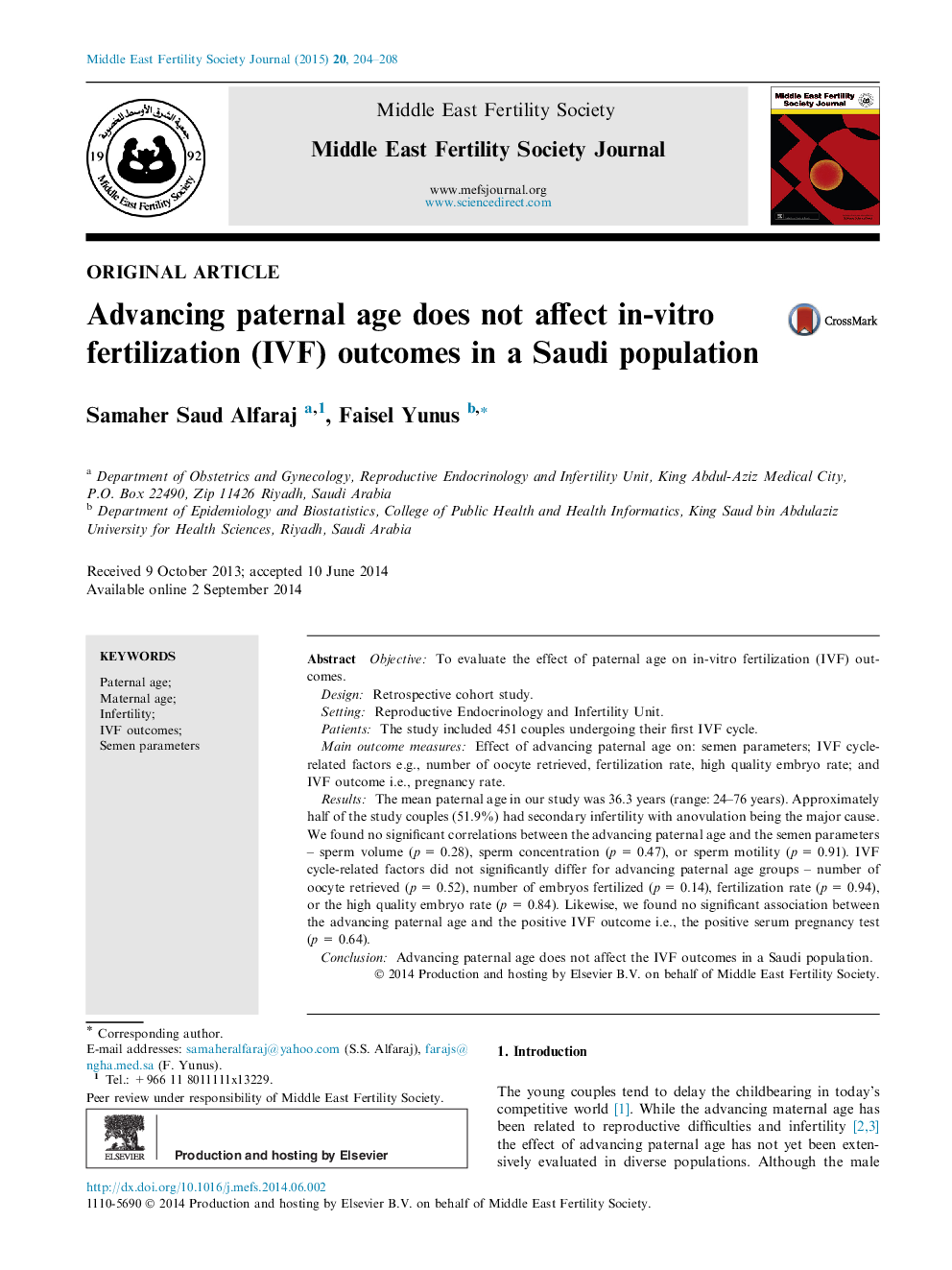| کد مقاله | کد نشریه | سال انتشار | مقاله انگلیسی | نسخه تمام متن |
|---|---|---|---|---|
| 3966104 | 1256137 | 2015 | 5 صفحه PDF | دانلود رایگان |

ObjectiveTo evaluate the effect of paternal age on in-vitro fertilization (IVF) outcomes.DesignRetrospective cohort study.SettingReproductive Endocrinology and Infertility Unit.PatientsThe study included 451 couples undergoing their first IVF cycle.Main outcome measuresEffect of advancing paternal age on: semen parameters; IVF cycle-related factors e.g., number of oocyte retrieved, fertilization rate, high quality embryo rate; and IVF outcome i.e., pregnancy rate.ResultsThe mean paternal age in our study was 36.3 years (range: 24–76 years). Approximately half of the study couples (51.9%) had secondary infertility with anovulation being the major cause. We found no significant correlations between the advancing paternal age and the semen parameters – sperm volume (p = 0.28), sperm concentration (p = 0.47), or sperm motility (p = 0.91). IVF cycle-related factors did not significantly differ for advancing paternal age groups – number of oocyte retrieved (p = 0.52), number of embryos fertilized (p = 0.14), fertilization rate (p = 0.94), or the high quality embryo rate (p = 0.84). Likewise, we found no significant association between the advancing paternal age and the positive IVF outcome i.e., the positive serum pregnancy test (p = 0.64).ConclusionAdvancing paternal age does not affect the IVF outcomes in a Saudi population.
Journal: Middle East Fertility Society Journal - Volume 20, Issue 3, September 2015, Pages 204–208